Book Reviews by Genre: Science Fiction
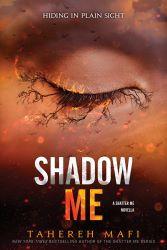
The Shatter Me series is one of my favorite book series ever. "Shadow Me" is a novella published after the 4th novel, "Restore Me".
"Shadow Me" by Tahereh Mafi provides readers with a glimpse into the mind of Kenji Kishimoto, a beloved character from the series. Through Kenji's perspective, readers gain insight into his thoughts, fears, and motivations, deepening their understanding of his character. Mafi's writing style shines as she navigates Kenji's emotional landscape with honesty and vulnerability, immersing readers in his world of friendship, loyalty, and inner turmoil. With its fast-paced plot and compelling character development, "Shadow Me" is a must-read for fans of the series eager for more insight into Kenji's journey.
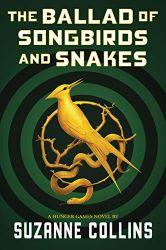
The Ballad of Songbirds and Snakes is a prequel to the first book The Hunger Games. This book shines a new light on how you see the overall world of the Hunger Games. The main protagonist in this book is Coriolanus Snow the ruler over the Capitol in the original Hunger Games. It was an odd spin on the book, but it works out perfectly. The number of characters from the original book that are in this book helps it feel more connected to the original series. It also shows how in this world the richest stay the richest and hardly anyone new climbs up the ranks to become wealthy and powerful. In The Ballad of Songbirds and Snakes, the Hunger Games are also viewed a different way. It is viewed as a way of power over the districts, so they don't have any of the tributes perform, unlike the 74th Hunger Games. I picked this book because I wanted to know what happened before the original Hunger Games. I enjoyed the world-building the most in this book. This book surprised me quite a bit because I didn't think I would like it as much as I did. This is definitely one of my favorite books I've read this year.
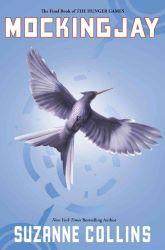
Mockingjay is the third book in The Hunger Games series. After the events of the 75th Hunger Games District 12 was destroyed, leading to even more uprisings across the districts. In the book Katniss and her allies try to recruit districts to their cause with the help of the newly rediscovered District 13. After everything is planned out the districts start an all-out war with the capitol. With both sides fighting fiercely, it could go any way. I chose to review this book because it is the 3rd book in The Hunger Games series. I enjoyed the war between the Capitol and the Districts the most in this book. This book is fairly predictable. I could relate to Katniss Everdeen in this book because she stands up for what's right even if it's not the easiest route to take like I do.
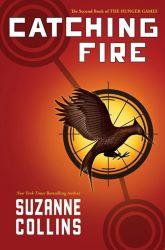
The Hunger Games Catching Fire is a sequel to the first book in the series The Hunger Games. The book takes place after the 74th Hunger Games where Katniss Everdeen and Peeta Mellark from District Twelve unexpectedly won the Hunger Games. Katniss, Peeta, and their loved ones were far from safe even after The Hunger Games due to their defiance against the Capitol. The districts were starting to rebel against the Capitol because of what happened in the 74th Hunger Games. President Snow (the leader of the Capitol) forces Katniss and Peetah to make the districts as well as himself believe that they weren't trying to defy the Capitol. After several failed attempts to calm the districts down President Snow took action when the Third Quarter Quell (75th Hunger Games) took place. I picked this book because it is a prequel to The Hunger Games. I enjoyed getting to know the aftermath of the 74th Hunger Games the most. My least favorite part of the book is how they handled The Hunger Games. I didn't feel like it was nearly as intense or interesting as the 74th Hunger Games. This book is also fairly predictable. I could relate to Katniss Everdeen in this book because she didn't know her allies from her enemies in the book, and I'm not too good at reading people in real life. This isn't one of my favorite books but it's definitely a solid book.
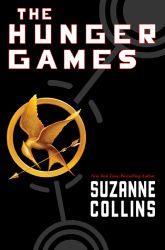
The Hunger Games is set in a dystopian world where the Capitol controls 12 districts. Every year each district is required to send in 2 tributes to compete in the Hunger Games. One female and one male between the ages of 12-18 are drawn at random to compete in the hunger games. The Hunger Games takes place in an arena where all tributes fight to the death until one tribute is last standing and crowned the winner. Tributes can also earn an advantage over other tributes before the games even begin by becoming liked by the general audience of the Hunger Games. If the audience likes a tribute in the Hunger Games, they are more likely to get a sponsor to send them supplies while they are in the arena. I read this book because of the dystopian genre. I enjoyed reading about the tributes in the arena the most in this book. This book is fairly predictable but that doesn't make it any less good to read. This is probably my favorite book of all time.
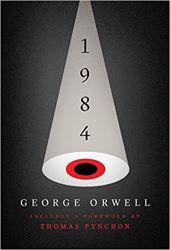
1984 is based in London, where the protagonist, Winston Smith, resides. In this dystopian society, a figure named "Big Brother" controls The Party, and watches every move citizens make. Everything in this nation is under heavy restriction to ensure Big Brother remains in control. This includes language, history, and even thoughts. Winston finds himself committing "thoughtcrime": having negative feelings and thoughts against "Big Brother", which is an extremely high offense in this nation. I enjoyed reading this novel because it includes intense moments that made my heart race, as well as many thought-provoking phrases that initiated reflection. This is the type of book that requires multiple reads to fully understand. I look forward to my second readthrough to experience the suspense again and catch new messages Orwell implemented. If you are into dystopian novels and conspiracy theories, I highly recommend this book, you won't regret reading it!
Reviewer: Grade 12
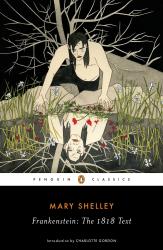
Frankenstein is a classic novel that recollects the events after Victor Frankenstein, a knowledgeable and curious scientist, gives life to a haunting creature. As soon as this monster opens its eyes, Victor becomes filled with regret. Although the monster fled from Victor's apartment, it wasn't the last time they would interact. Readers witness Frankenstein's sickening and terrifying journey as he searches for his monster. I believe this novel did an amazing job of expressing the valid feelings of the monster while also displaying Victor's feelings and emotions. Some chapters in the story tend to drag and there are events that Mary could have elaborated on to provide readers a clearer image of each occurrence. But overall, this was a unique approach to expressing themes of isolation, vanity, cruelty, and fear.
Reviewer: Grade 12
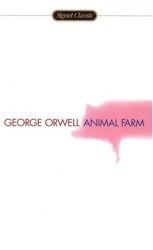
Orwell wrote this book to examine the early years of the Soviet Union and the real result of the Russian Revolution. He uses Manor Farm as the setting and uses the farm animals as characters to convince the reader how the leaders of a country could put in place a system that would not be the utopia they promise. These promises may turn out to create a situation much worse than existed before. Orwell wanted a farm where “All Animals Are Equal.” Unfortunately, “Some Are More Equal Than Others.” The reader will recognize some of the characters as representing historical figures such as Stalin, Marx, Lenin, and Trotsky. If you are interested in economic and political systems and how they impact the citizens, you will not be able to put this book down! Animal Farm is one of my favorite books.
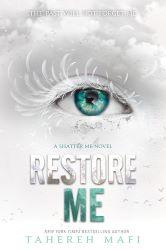
"Restore Me" by Tahereh Mafi is a breathtaking continuation of the Shatter Me series, deserving a perfect 5 out of 5 stars. Mafi's prose is as mesmerizing as ever, drawing readers into Juliette's tumultuous world with its vivid imagery and emotional depth. The character development is superb, as Juliette grapples with the weight of her newfound power and the responsibilities that come with it. The dynamic between Juliette and Warner crackles with intensity, adding a layer of complexity to their relationship that is both compelling and heart-wrenching. Mafi expertly balances action and introspection, keeping readers on the edge of their seats while delving into the inner workings of her characters' minds. The plot twists and turns with unpredictable ferocity, culminating in a jaw-dropping cliffhanger that will leave readers clamoring for more. "Restore Me" is a masterful addition to the series, showcasing Mafi's talent for storytelling and cementing her status as a powerhouse in the YA genre.
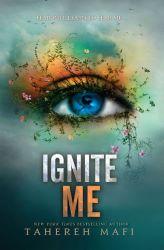
"Ignite Me" by Tahereh Mafi is an electrifying conclusion to the Shatter Me series, earning a well-deserved 5 out of 5 stars. Mafi's poetic prose and raw emotion ignite the pages, drawing readers into the tumultuous world of Juliette Ferrars. The character development is exceptional, as Juliette evolves from a fragile girl into a fierce and empowered leader. The chemistry between Juliette and Warner sizzles with intensity, adding an extra layer of tension to the narrative. Mafi's exploration of power, identity, and love is profound, resonating long after the final page is turned. The action-packed plot is relentless, keeping readers on the edge of their seats with each twist and turn. Overall, "Ignite Me" is a breathtaking conclusion that will leave fans of the series completely satisfied.
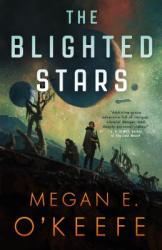
I quite enjoyed most of the elements of this book. I liked the characterizations, the world-building, plot, and dialogue. I haven't spend a ton of time in sci-fi, but I feel as though most of the jargon had some good context and I was able to pick it up pretty readily. Overall, I really enjoyed this book and am bought into finishing the trilogy and finding out becomes of these characters.
I particularly liked the ideas that are put out in terms of consumerism, colonization, ecological terrorism, and species symbiosis and parasites. It wasn't all 'grim-dark' and while it left me clenching my fist, it wasn't hopelessness, but self-reflection, and a blossoming interest-- which I feel are good reactions to have to scifi-typical questions that are often raised in texts. I particularly appreciated that I didn't love the characters from the beginning. I felt they were pretty well-rounded and they grew on me.
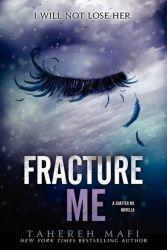
"Fracture Me" is a novella that delves into the depths of despair and resilience with intense emotional impact, earning its place as a pivotal addition to the Shatter Me series. Tahereh Mafi crafts a raw through the eyes of Adam Kent, offering readers a glimpse into his inner turmoil and shattered heart. As Adam grapples with loss and betrayal, his journey becomes a testament to the strength of the human spirit in the face of adversity. Mafi's prose is hauntingly beautiful, capturing the essence of pain and longing with exquisite precision. The exploration of Adam's relationships, particularly his complex dynamic with Juliette, adds layers of complexity to the story, enriching the reader's understanding of the characters' motivations and struggles. "Fracture Me" is a masterful portrayal of love, loss, and the resilience of the human spirit that leaves an indelible mark on the soul.
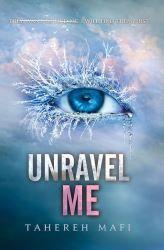
"Unravel Me" is an electrifying sequel that not only lives up to its predecessor but surpasses it in every aspect. Tahereh Mafi's writing is as intoxicating as ever, pulling readers into a world of chaos, romance, and inner turmoil. Juliette's journey of self-discovery continues to unfold with breathtaking intensity, as she grapples with her newfound powers and the weight of her past. The dynamic between Juliette and Warner sizzles with undeniable chemistry, adding layers of complexity to an already gripping narrative. Mafi masterfully explores themes of identity, love, and sacrifice, making every page a visceral experience that resonates long after the book is finished. The plot twists and turns with relentless momentum, keeping readers on the edge of their seats until the very end. "Unravel Me" is a triumph of young adult literature, a rollercoaster ride of emotions that leaves you eagerly anticipating the next installment!
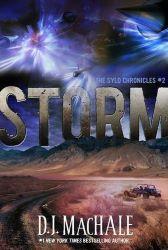
This book is the second book of an awesome post-apocalyptic trilogy that I read last summer. The book takes place after the protagonist, Tucker Pierce and his associates escape Pemberwick island. They found the need to escape after an assumed military branch (SYLO) took control of the island because of sickness. When they reach the mainland, they discover that no one is left. As if things cannot get worse, they find a black UFO like plane (from the first book) and discover that it bears the U.S. air force logo. Because SYLO seeks to destroy these planes, they conclude that a second civil war could be under way.
After this discovery, Tucker and his friends set out on a cross country quest for vengeance, and to find out what happened to the entire country, one death defying event after another.

Animal Farm is an allegorical story about farm animals that manage to overthrow the humans and run the farm by themselves. However, the pigs slowly take more and more power, until it’s no better than it was before.
The plot is simple and easy to follow. Even a child could easily understand it. However, this is a very compact story. Every page has a new development that moves the story along. The characters are likewise simple, yet effective. Boxer and Benjamin are the standouts in this story. Boxer because of his lovable nature and Benjamin for being one of the few characters in the book to hold some complexity.
The reason for this story’s simplicity is that it is an allegorical story. Every element is designed to mirror the Russian Revolution (though it could easily be applied to many worldwide revolutions). Since they have to represent broad groups of people, the characters can seem a bit flat at times. The same goes for the plot. It’s great for those who want a quick and thought provoking story, but could be disappointing for those looking for in depth analysis.
I would recommend this book to fans of symbolism and allegory, or even the run of the mill dystopia fan.

Mockingjay is the third book to the Hunger Games trilogy. Katniss finds herself stuck in between a rebellion and the future of Panem. It is discovered that Katniss was rescued by District 13, which is an underground district that joined the rebellion against the capitol. Katniss is fighting for her loved ones yet again, and against the capitol directly. She is chosen as the symbol for the rebellion, but she doesn’t know if that is what she wants.
This book wasn’t my favorite out of all three, but I recommend reading it because it is still a good book. Definitely read the other two books before this one, so you can understand what is going on. Mockingjay is one of the more emotional books from this trilogy, but it still keeps you on edge like the other two.
Reviewer Grade: 8th

Catching Fire is the second book in the Hunger Games trilogy. After Katniss and Peeta return home from the games, they both go on the victor tour to all the districts. Before they left President Snows visits Katniss and says she still needs to be in love with Peeta so there won’t be an uprising in the districts. After that, the Quarter Quell (the 75th Hunger Games) comes along and everything changes. Katniss needs to fight for the ones she loves, and to stay alive. If you’re interested about reading Catching Fire make sure you read the first book of the trilogy, The Hunger Games. This book has a lot of good twists and turns, and kept me wanting to flip to the page to see what happens next. It was an emotional book, which keeps you on the edge. If you liked the first book I recommend reading the second!
Reviewer Grade: 8th

The Hunger Games follows a girl named Katniss Everdeen. She lives in a world where there is 12 districts, which are controlled by the capitol. This nation is called Panem. A very long time ago, the districts rebelled against the capitol, so the capitol created the Hungry Games. The Hunger Games is a game played each year, and one boy and girl from each district is sent to fight to the death. When Katniss’ younger sister Prim is chosen as the tribute for district 12, Katniss couldn’t let her sister go, so she volunteered to go in for her as the female tribute for district 12. Katniss and the male tribute of district 12, Peeta Mellark, are sent to the capitol to train for the games.
This was an amazing book that I recommend to everyone including new readers like myself. I’m not a big reader, but this book really had me stuck to the pages. I was up all night and couldn’t stop thinking about what is going to happen next! The Hunger Games is definitely one of my favorite books!
Reviewer Grade: 8
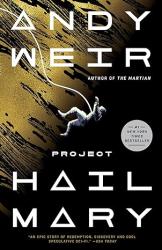
This book is amazing! it has twists and turns, and the author is amazing! The science is explained well enough that anyone can understand it. Also, whenever you think the book is done, it just goes, 'Here's another problem, Main character! good luck!" Also, the book is in the format of a 'White Room" story, meaning that the character has no memory, and has to figure everything all out, along with you! Would recommend to any sci fi fan over the age of 12.
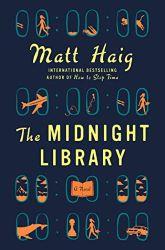
TW: A main theme of this book (and thus the review) is suicide. If this topic makes you uncomfortable, I would suggest finding a different book.
“The Midnight Library” is a story about Nora Seed, whose life has not gone how she’s expected. Worse yet, she feels as though it’s all her fault and her regrets weigh heavy on her. One night she decides to end her own life, but she wakes up in a library with her elementary school librarian. That’s when she gets the opportunity to live the lives she could have led if she’d made different decisions.
As the story goes along, we see many of Nora’s alternative lives. Some of them are just as disastrous as her regular life (her best friend dies, her husband cheats on her). Others are nearly perfect, but can’t be truly satisfying when she didn’t create them. I was glad that some of the alternate lives were good, otherwise it would have seemed like Nora’s original life was simply the lesser of two evils. All of them are interesting to read about. Another interesting aspect of the book is the library itself. The author knows when to reveal information and when to keep things vague.
There aren’t many characters to keep track of. Nora is the main character, and the reader gets a good sense of her interests and aspirations through her various lives. Her friends and family all get a decent amount of depth as well, though they’re not in focus most of the time.
I can’t pretend that I really resonated with the message of the book. I would have preferred if it focused a bit more on the good things that could happen in Nora’s future rather than the good things that happened in her alternate lives. However, that could be a problem exclusive to me.
Overall, I would recommend this book to almost anyone. It’s a fast read and a good story.
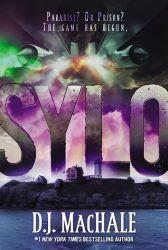
This is the first book of an awesome Apocalyptic trilogy. This book starts out with a high school football player named Tucker Pierce, who lives a quiet life on Pemberwick Island,Maine. He is also perfectly fine being the backup for a kid named Marty on the team. As a game goes on, Marty seems to be having the best game of his life, when he scores a touchdown and just drops dead. The narrator describes the whole story in past tense, and describes that as "the first death". This is the start of a "real page turner" of a story. As that week goes on, Tucker and his friends (Quinn and Tori) find out that a U.S. military branch invades his island.This story goes on to describe how The trio find out what the heck is going on, and in three books! It is a very good book, and I strongly recommend it. Just don't read it if you do not have access to the other books, because you have to read the whole series.
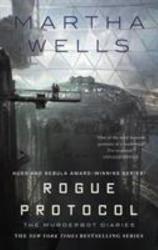
By this point in the Murderbot Diaries series, I'm used to the short length of these stories. I appreciate that there's still an overarching plot that the books are driving toward, but the bite-size adventures of the sentient AI robot are also entertaining by themselves. Now that the series is in a good groove by book three, I was glad to see the introduction of a foil to compare and contrast the main character's interactions with the humans.
The rogue SecUnit continues to find himself deeper into the shady dealings of humans, but with each interaction, he's finding it harder to hide who he is and what he's doing. That these "missions" he gives himself are a significant amount of effort for someone who would much rather be lazy and just watch vids all day seems contradictory until you realize that it's great character development—even if it's subtle. Raising the stakes with each book also helps to make this one the best one in the series to date. There has to be a point soon when things become fully out of the SecUnit's control.
It's always interesting to me how the characters that have stuck with me through the series (aside from the main character of course), are the other AIs and robots. In Rogue Protocol, I immediately fell in love with Miki, who showed the other side of human-robot relations as a pet/mascot. The contrast between Miki and the SecUnit was a fantastic plot device and I would love some kind of spinoff with those two characters (or characters like them). Unfortunately, the abrupt ending to this book left me a little disappointed, as I felt there needed to be more time with the characters to get their full range of emotions after the climax.
A great book filled with contrasting human-robot relations, I give Rogue Protocol 4.5 stars out of 5.
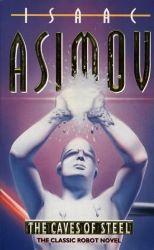
As someone who generally stays away from science fiction books, I was pleasantly surprised by this venture outside my comfort zone. Elijah Baley is the main character, living thousands of years in the earth's future. In this time period, robots have become commonplace and other planets have been commonplace. Tension has grown between earth dwellers and the residents of the other planets (referred to as spacers). There are also concerns about the increasing number and sophistication of robots. Elijah, though less extreme than many of his colleagues, is not immune to this prejudice, and is less than happy when he has to team up with R. Daneel Olivaw, a spacer robot, to solve a homicide.
The characters are not deep or complex, but they are consistent and interesting. All characters have a purpose in the story, and most of them change in some way by the end. Elijah is likable, perhaps especially so because he's allowed to fail. He's shown to be incorrect in many of his initial beliefs, and makes many false assumptions, but he retains good qualities throughout it all. R. Daneel is an interesting take on the robot archetype. Though he's shown to be effective in his job and capable of change, he lacks essential human qualities that Elijah must make up for. The side characters all have clear motivations, personalities, and are interesting without being obtrusive.
The plot strikes a balance between complex and easy to follow. There are a great deal of plot twists and dead ends, but the story takes its time and allows the reader to process everything. I hope I re-read this book one day, so I am able to look for clues to the culprit that I might have missed the first time around.
I have no overt critiques. The only bad thing I can say about this book is that it's not a deep philosophical experience. There are tcertainly hemes, but the book focuses more on excitement and intrigue than anything else. I would reccomend this book to sci-fi fans, and anyone looking to get into the genre.
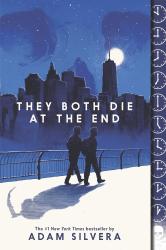
This book is amazing! The story will honestly warm your heart and keep you on your toes. The characters' development is done so beautifully and you definitely get an idea about how important life is. Don't waste another moment and please read this book!
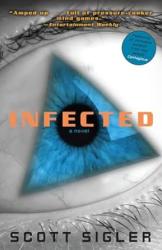
Stephen King has written most of the horror I’ve read. In deciding to branch out from the master of the genre, I saw the cover for this book in the listing of audiobooks for my library’s reader app and thought it looked interesting. While the horror here was more body/gross-out horror—which I didn’t have any issue with—there are other, deeper problems with this book. I’ll grant that in terms of audiobooks, it was an interesting recording with the sound effects and “alien voice” bits. However, I can’t say I recommend this book based on those merits alone.
Perhaps this is an artifact of the times, but a book that came out in 2008 has not aged well at all. First, is the abundance of “men writing women” tropes that not only minimize the female characters to minor roles but doesn’t consider that perhaps not everything has to be about sex. Furthermore, while the main character was a person of color, there were a lot of negative stereotypes and mildly hidden racism that came through. Reading this book made it feel like I had gotten inside the head of a “bro” guy, and it was pretty cringe.
I think the biggest problem was that this book was too cavalier with its “gross-out” factor without having enough suspense to justify the constant violence. When I didn’t care about any of the characters and the vignettes that split off to explore one-shot characters didn’t give me enough time to be empathetic for them, then who cares about the violence that happens to them? More often than not, the pacing felt so slow that I had to check how much time was left, hoping that at some point it would go faster.
A horror story that was scary for reasons other than its violence, I give Infected 2.0 stars out of 5.
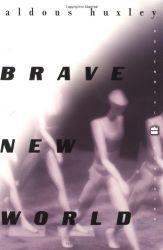
Brave New World presents a uniquely disturbing dystopia- but unfortunately, that is where its strengths end. The plot, aside from the setting, is so loosely strung together that a main character, main storyline, or even main theme is unclear. The story meanders from one under-developed character to the next and, without the support of a vivid setting, the novel would crumble. I admire the creativity behind the premise and the craft behind the writing style, but the plot simply lacks. The novel is only worth reading to delve into the vivid world that Aldous Huxley created.
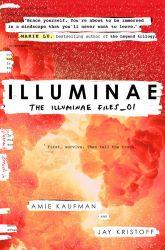
This book was interesting. It takes place in 2575 so way in the future and includes a planet invasion and a plague. It was also written in the transcripts of files and emails, so even though it was a long book it was a quick read. It was slow at the beginning and a little hard to get into because of the different way of writing it, but it eventually got good. I was interested for a while, but then it just got confusing again. I also did not enjoy the main character or the way she acted, her character development just stopped making sense. I’m not sure if I would recommend this book, I think if you want a legit sci-fi novel you should read this, but be prepared to focus try to transcript emails and codes.

The Ballad of Songbirds and Snakes is a prequel story taking place before the events of the hunger games, and is about president Snow before he becomes president. This book was interesting because it shows Snow as a mentor to a tribute from district 12 during the tenth annual hunger games. You also hear a lot about Snow’s internal monologue which can get a little creepy because some of his actions actually make sense despite them being twisted. The book was a lot longer than any of the original hunger games books so it was a little slow which made it boring at times, but it was interesting to see Snow slowly morph into the twisted and feared villain he is later. The love story in the book was also strange because Snow would be the last person you would think of to show compassion and even Suzanne Collins can confirm this throughout his internal monologue. Overall, I think this is a great book to read if you enjoyed the hunger games series and there is a movie adaptation coming out this November which was one of my reasons for reading it.
Reviewer Grade: 8
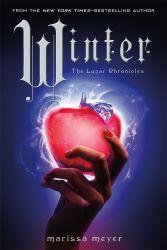
This book was the absolute perfect ending to the Lunar Chronicles! There was so much action and fairytale elements in the book that were all easy to follow, and fun to read! Marissa Meyer was a genius when she incorporated an adaptation of a sci-fi Snow White, while still be able to keep the story flowing and add growth to the characters. It is important to read the series in order, but Winter was by far my favorite in the series!

Although George Orwell crafted a rather interesting dystopia, the story he built around it largely fell flat. It was apparent throughout the novel that Orwell was more of an essayist than a storyteller; he was more interested in explaining the structure of his setting to his audience rather than showing them how that structure affects the story. 1984 suffers from hundreds of pages of blunt exposition-dumping that disconnects the reader from the characters and plot. While there is significant payoff at the end, the rising action was rather lacking in weight as the main character spends more time describing the logistics of the 1984 world rather than where he fits in it. Some aspects of Orwell's famous dystopian are intriguing, like the use of Newspeak or the new family dynamics, though it is overall disappointing.